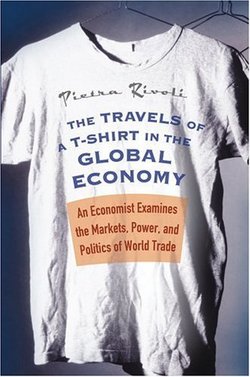 Source of book image: http://www.amazon.com/gp/product/product-description/0743237536/104-0088216-5679944
Source of book image: http://www.amazon.com/gp/product/product-description/0743237536/104-0088216-5679944
Today’s review of the new Gene Sperling economic policy book in the New York Times Book Review, begins by emphasizing Sperling’s importance in the Clinton administration:
(p. 16) If you were inclined to identify Clintonism with a single person other than the big man himself, that person might well be Gene Sperling – a top campaign adviser in 1992; a tireless advocate of fiscal discipline during the first term; an inveterate policy wonk throughout all eight years of the administration. So it’s little surprise that this book-length vision for a Democratic economic strategy can best be described as Clintonism 2.0.
NOAM SCHEIBER. “Clintonism 2.0.” The New York Times Book Review, Section 7 (Sun., January 22, 2006): 16.
Here is the opening paragraph of Sperling’s chapter one, which is entitled ” Growing Together in the Dynamism Economy.”
In the 1990s, a new economic era was created when a period of intense globalization collided with an information technology revolution. Yet precisely defining a "new" economy is less important than understanding the nature of the change. I believe a more descriptive label is the “dynamism” economy. Of course, dynamic change in market economies is hardly new. The mid-twentieth-century economist Joseph Schumpeter identified the process of “creative destruction,” positing that a healthy market economy is continually moving forward, replacing old capital, old industries — and existing jobs — with more productive alternatives. Yet, what feels most “new” for average citizens is the breakneck speed at which the increased globalization, rapid technological advance, and the explosion of the Internet are putting fierce competitive pressures on the economy and accelerating change not only in products and services, but also in entire job categories and industries.
Part of the first chapter is viewable at Amazon.com. The book citation is: Sperling, Gene. The Pro-Growth Progressive: An Economic Strategy for Shared Prosperity. Simon & Schuster, 2005.
“Dynamism” as a descriptor for the good society also appeals to libertarian economics columnist Virginia Postrel, author of The Future and Its Enemies and webmaster of dynamist.com.



